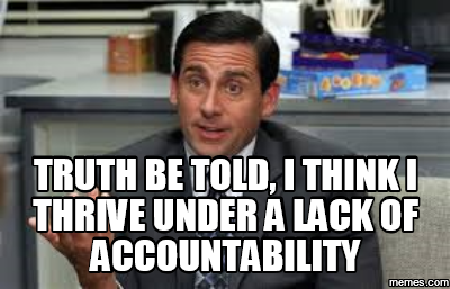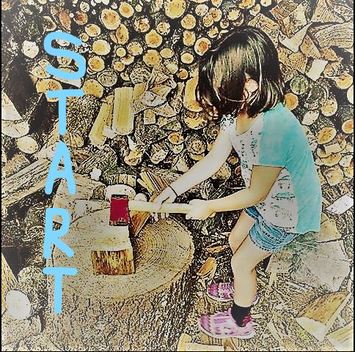 Extreme responses maintain status quo Extreme responses maintain status quo There are many responses to dysfunction, many of them perpetuate malfunctions rather than address the underlying issues. On one extreme a dysfunction is spotted and the manifestation of that ill becomes the crusade of a segment of people who mount their high horses to rid the world of that threat. The opposite end of the spectrum is a concerted effort to sympathize with the ill and normalize it to the point where there is no effort to address the item. Unfortunately we have become a society of extremes more often than we have chosen to be objective about narrowing down root causes for dysfunction and collaborating to identify solutions. This is glaringly obvious in politics but it is the modus operandi for individuals, families and businesses as well. By taking a peek at how we treat drug related issues we can learn something about our approaches to dysfunction in our personal and professional lives as well. Dr. Carl Hart, a Columbia University neuroscientist, has interwoven his own personal experiences with and around drugs combined with his research particularly in the areas of crack cocaine and methamphetamines to attempt to provide sound advice in the attempt to address drug use theology in America. Drug abuse is a dysfunction in American society, and in the world, yet the manner in which we have chosen to address this sickness has predominantly led to expanding that dysfunction rather than curing it. Canadian physician Gabor Mate has made the alarming observation, “If I had to design a system that was intended to keep people addicted, I’d design the system [of criminalization] that we have right now. To create a system where you ostracize and marginalize and criminalize people, and force them to live in poverty with disease, you are basically guaranteeing they will stay at it (Hari, 2015, p.166).” Dr. Carl Hart approaches this topic from a few key standpoints that are unique to his position: he first speaks as one who grew up in poverty and was able to connect with some positive influences who helped him shape his life out of the cycle of impoverishment and addiction; secondly he speaks as a neuroscientist who has dedicated his life and studies to the causes and treatments for drug addiction; and finally, he approaches this topic as a father who discovered he had a son who was struggling with the same issues he has been addressing in his own experience as well as his professional life. Speaking on drug policies and approaches, Carl notes, “Much of what has gone wrong in the way we deal with drugs is related to confusing cause and effect, to blaming drugs for the effects of drug policy, poverty, institutional racism, and many other less immediately obvious factors.” Of particular interest to Dr. Hart, as well as many others working in this field of study, are the conventional methods of testing drug theories using rats in isolated scenarios. I found it interesting that simply by asking the question as to whether the structure of the prior experiments such as Rat Park were rooted in short sighted scenarios that did not account for the factors of life. In the 1970’s experiments were conducted where rats left alone were more likely to choose drugs than rats who were in a community with options other than drugs. Conducting his own experiments, Dr. Hart sought out persons who fit the criteria of DSM addiction, offering them small amounts of money to make a choice between drugs and an alternative. “They didn’t fit the caricature of the drug addict who can’t stop once he gets a taste,” Dr. Hart said. “When they were given an alternative to crack, they made rational economic decisions.” It is interesting to note that the day before Dr. Martin Luther King Jr. was assassinated he made his now infamous speech, “I have been to the mountaintop”, which continued a shift in tone and content of his emphasis from racial equality as a solo issue to the broader context of poverty. In one part of that speech, MLK Jr. states, “Another reason that I'm happy to live in this period is that we have been forced to a point where we are going to have to grapple with the problems that men have been trying to grapple with through history, but the demands didn't force them to do it. Survival demands that we grapple with them.” Dr. King was addressing injustice as a universal issue and the specific context applied to the treatment of Memphis sanitation workers. When we claim high ideals those concepts meet the pavement in how we treat those in positions often unseen yet critical to a local operation. Unfortunately, we have continually chosen with our rhetoric, policies and enforcement approaches to maintain the status quo rather than make significant changes towards addressing root causes of dysfunction at the local as well as the national level. We can see this in politics, we can see this in criminal justice reform but these same threads exist in our personal lives, our families and our organizations. Is this leadership? Dr. Hart makes the point that the main disparity is in how we approach the dysfunction of our drug dogma, that the cost of our war on drugs has been so much higher than investing in treatment and has been significantly ineffective in treating the core causes of the ill of drug addiction. In an interview with the New York Times, Dr. Hart is asked what he would say to those who preach “Just Say No” as a valid response to the drug issue and believe The War on Drugs is a salient approach to addressing the root causes. Carl responds, “Probably nothing. Those people are so detached. I mean, really, they are clueless. If politicians did care about their constituents, they would work harder to seek out people like me. They don’t (Chozik, 2014).” Many that I have discussed these topics with are in either camp of extremes mentioned in the opening of this writing, either there is an ongoing crusade to carry on the legacy of Ronald Raegan or there is an permissive dissonance with the reality that drug addiction is an issue. Positioned in the middle are those who are tired of the noise which either leads them to tune out or to dig in and put their energies to work for local creative solutions. It seems the loudest voices are in those extremes and they are given the broadest media platform as well, but there is beautiful work being done by many who are quietly going about their business in making the world a better place. Where dysfunction is noted in an organization, and to be sure all teams have some level of malfunction, the lesson here is that objective approaches rooted in science can provide insights into creative solutions. To make a difference we have to face some hard truths and be willing to allow the evidence to take us through to a solution rather than hide in the shadows of the status quo or take our expected positions in the tunnel vision of the extremes. References: Hari, J. (2015). Chasing the scream: The first and last days of the war on drugs (First U.S. edition.). New York, New York: Bloomsbury. Rev, T., & JR., M. L. (n.d.). Martin Luther King's Final Speech: 'I've Been to the Mountaintop' -- The Full Text. Retrieved November 18, 2017, from http://abcnews.go.com/Politics/martin-luther-kings-final-speech-ive-mountaintop-full/story?id=18872817 Chozik, A. (June 27, 2014). Carl Hart: ‘Crack wasn’t the real problem’. New York Times Magazine. Retrieved from https://www.nytimes.com/2014/06/29/magazine/carl-hart-crack-wasnt-the-real-problem.html
0 Comments
Struggling with recruitment of new talent to strengthen your team? Why do we keep going to the same well expecting it to no longer be dry? Hiring from a short list within an industry bubble does not create a lot of room for introduction of new ideas, perspectives and strengths.
Read more on this topic, article HERE.  What are creative experiments you do to teach principles What are creative experiments you do to teach principles Service. What a ways that you can creatively discuss and teach your family to have a servant's perspective? We were throwing out ideas and decided that a few simple projects that we could do would be: 1) Dinner - at dinner time you cannot put food or drink in your own mouth, nor could you ask for anything. If you want to take a bite, you will need to wait until someone at the table sitting at either side of you offers. If you want a drink, something much trickier, you will have to rely on the stable hands of your fellow consumers. In service the point is to look for opportunities to help others and to work to reach people where their needs are in a manner that communicates care to them. Someone in our group noted that service means treating others how you would want to be treated and we discussed that in doing so it is important to think about how that person will receive it rather than just doing what you think you would want. 2) Chores - we decided to divide the family chores differently than we had to streamline the process and once the responsibilities were lined out, we then informed the members of our family that they would be responsible for the chores of someone other than themselves. For the duration of the experiment, you would make the bed of the person you were assigned to serve, you would clean their room, do their laundry and assume the responsibility for their assigned chores. As noted above, service entails attempting to understand what is important to the person you are serving, not only doing unto others as you would have them do unto you (the golden rule) but listening and adjusting to their perspective. No one likes chores, but they are things that need to be done. The dinner experiment ended up being pretty fun. Next time we do it we need to make spaghetti or something messy like that. What creative family experiments or projects have you tried in order to teach a principle to the group? Have you tried anything similar in a professional setting? Connect. Collaborate. Conquer.  How do you overcome your fear of not knowing where or how to get started when you think you are ready to start promoting your entrepreneurial vision online? By Jon Isaacson We have come a long ways from free trials of AOL and waiting for the dial up modem to connect with the internet to now constant connection to information on multiple platforms. Web content continues to evolve from the eclectic early MySpace communities to generic sites built on GeoCities to now being the super highway for disruption and innovation. Even though our personal use of the internet portal borders on addiction, there are many entrepreneurs, side hustlers and weekend warriors who are relatively in the dark when it comes to utilizing resources that are both simple and inexpensive. If you aren't sure how to get your vision working for you through the resources that the internet provides, here are a few simple tips to getting started. Start with what you use. Are you on Facebook? Have you ever mentioned your business or the skills that you want to monetize on this platform? Most businesses endeavors start with approaching your friends and family as your initial client base, if you, your friends and your family are on Facebook why wouldn't you utilize this finger ready medium to promote your entrepreneurial venture? The next step would be creating a Facebook Page for your business, this is free, it is simple and it could serve as your businesses first foot print on the moon of internet commerce. Start by doing what's necessary; then do what's possible; and suddenly you are doing the impossible. Francis of Assisi Start with what you know. Do you have knowledge, skills and/or products that could be of use to others in improving their lives? Share what you know about these items and distribute that information in as concise and clear an information package as you can manage. There is plenty of useless information on the internet, if you are authentic and have genuine information to share, there are people that are ready to listen. The internet is a platform that is always working for you and can expose you to clients that you otherwise would not physically be able to reach. Think in terms of what you can contribute that can serve others by saving them time or money by sharing the experience that you have acquired. Good judgment comes from experience and experience comes from bad judgment. Barry LePatner Start with whom you know. Talk to the people who know you, your experience and your products/services, ask them about what they appreciate about what you do as a starting point for where you can connect with potential clients. It's one thing to have positive input from your friends and family, the next question for an entrepreneur is whether those feelings will transform into purchase orders. Having constructive input from trusted resources such as friends, family and mentors is essential to building your message, your network and your business. To read more about identifying, leveraging and building your market, read our article The Four Essential Who's of Breaking Into a New Market. If you have a dream, you can spend a lifetime studying, planning, and getting ready for it. What you should be doing is getting started. Drew Houston As an entrepreneur, if you do not know where to start - start with what you are already using, start with what you know and start by trying your branding out on people whom you already know. If you are on a platform such as Facebook start with what you use, what you know and who you know by experimenting with promoting your business through that medium whether you post on your personal page or create a business page for your organization. If you want to share your insights and ideas with the world there are blogging resources such as Wordpress that make setting up a site simple and free, with a few clicks you are ready to start assailing the web readers with your quips. If you feel like you are ready to take a shot at having a personal or business website, tools such as Weebly make starting an entry level site easy. If you start you can adjust as you learn, if you never start you will always fail. I can accept failure, everyone fails at something. But I can't accept not trying. Michael Jordan The voices inside you are probably battling between the comforting voice cheering you on, "You got this, if those idiots can do this than so can you!" While the voice on the other shoulder take a different tone, "There's no way you can do this, they're all going to laugh at you." Your first attempts will probably look like first attempts, your first articles may be boring, your first site will likely struggle to gain traction, but the reality is that 1) you'll be laps ahead of everyone else who is still sitting on their thumbs and 2) everyone else started out the same way. Whether it's learning a sport, an instrument, a language or how to navigate the modern market, the most important thing is to not enable your fears to cripple you - start somewhere and you will learn as you go. If you hit a wall or decide you want some assistance, you know where to find us. |
AuthorThoughts on personal and professional development. Jon Isaacson, The Intentional Restorer, is a contractor, author, and host of The DYOJO Podcast. The goal of The DYOJO is to help growth-minded restoration professionals shorten their DANG learning curve for personal and professional development. You can watch The DYOJO Podcast on YouTube on Thursdays or listen on your favorite podcast platform.
Archives
March 2023
Categories
All
<script type="text/javascript" src="//downloads.mailchimp.com/js/signup-forms/popup/unique-methods/embed.js" data-dojo-config="usePlainJson: true, isDebug: false"></script><script type="text/javascript">window.dojoRequire(["mojo/signup-forms/Loader"], function(L) { L.start({"baseUrl":"mc.us5.list-manage.com","uuid":"b9016446bd3c6a9f0bd835d4e","lid":"83282ffb9e","uniqueMethods":true}) })</script>
|
Jon Isaacson |
Connect. Collaborate. Conquer.
© COPYRIGHT 2015. ALL RIGHTS RESERVED.
|



 RSS Feed
RSS Feed